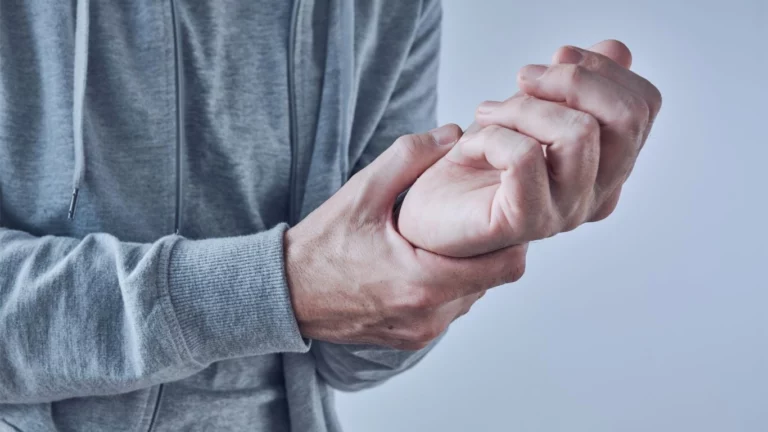How Chocolate Triggers Heartburn – A Comprehensive Guide
Ever wondered why that chocolate bar you love so much can sometimes lead to heartburn? You’re not alone. While chocolate is undeniably a delicious treat, it can also be a culprit in triggering acid reflux or heartburn for many people. In this article, we’ll dive into why chocolate can cause heartburn, how it affects your body, and what you can do to manage it without giving up your sweet tooth entirely.
What is Heartburn?
Before we get into the chocolate details, let’s quickly cover what heartburn actually is. Heartburn occurs when stomach acid backs up into the esophagus, causing a burning sensation in the chest or throat. It’s super common, especially after eating certain foods, and can range from mild discomfort to a more serious condition called gastroesophageal reflux disease (GERD). You probably know that spicy, greasy, or acidic foods can make things worse—but what about chocolate?
Why Chocolate Triggers Heartburn
Okay, so chocolate is a bit of a heartburn troublemaker for some people. But what exactly is going on inside your body when you indulge in your favorite cocoa-based treat? Let’s break it down:
1. Caffeine Content
Chocolate contains caffeine, a stimulant that can relax the lower esophageal sphincter (LES). The LES is a muscle that acts as a barrier between your stomach and esophagus. When it relaxes too much, it allows stomach acid to escape into the esophagus, leading to heartburn. So, if you’re sensitive to caffeine, that chocolate bar could be a sneaky culprit. 
2. Theobromine
Chocolate also contains theobromine, a compound that’s similar to caffeine and has a similar effect on the LES. Theobromine can help to relax the LES, contributing to acid reflux. This is why dark chocolate, which contains more theobromine, may cause more heartburn compared to milk chocolate.
3. Fat Content
Chocolate, especially milk and white chocolate, is often high in fat. Fatty foods take longer to digest and can delay stomach emptying. This increase in stomach pressure can lead to the LES relaxing, making it easier for stomach acid to make its way into the esophagus. 
4. Sugar
Sugar is another common ingredient in chocolate that can trigger heartburn for some people. High sugar intake can increase the production of stomach acid, further aggravating heartburn symptoms.
Chocolate and GERD: How They’re Connected
If you’ve got GERD (Gastroesophageal Reflux Disease), the link between chocolate and heartburn becomes even more important. GERD is a chronic condition where acid reflux happens more frequently, and chocolate can exacerbate these symptoms. The combined effects of caffeine, theobromine, fat, and sugar create the perfect storm for acid reflux to occur. If you’re living with GERD, you might need to be extra mindful about your chocolate consumption. Fortunately, not all chocolate will affect you the same way, so it’s worth experimenting to see what works best for you.
Managing Heartburn Caused by Chocolate
So, what can you do if you’re a chocolate lover but also want to avoid that uncomfortable heartburn feeling? Here are some tips to manage heartburn without cutting chocolate out of your life completely:
1. Opt for Dark Chocolate with Less Sugar
If you want to enjoy chocolate but keep the heartburn at bay, try choosing dark chocolate with a lower sugar content. Dark chocolate contains more theobromine and caffeine, but if you can tolerate it in small amounts, it may be a better option than milk chocolate. Look for chocolate that has at least 70% cocoa for a richer taste without overloading your system with sugar.
2. Limit Portion Sizes
It’s not necessarily chocolate itself that’s the problem, but how much of it you eat. Eating smaller portions can help reduce the chances of heartburn, as it won’t overload your stomach. So, a few squares of chocolate may be all you need to satisfy your craving without triggering reflux.
3. Choose Chocolate with Less Fat
Look for chocolate that’s lower in fat, especially if you’re prone to heartburn. Milk chocolate and white chocolate tend to be higher in fat, so switching to a lower-fat dark chocolate might help.
4. Avoid Eating Chocolate Before Bed
Eating chocolate late at night or right before bed can increase your risk of heartburn. The reclining position allows stomach acid to more easily travel up the esophagus. If you enjoy chocolate, try to enjoy it earlier in the day and avoid lying down for at least two to three hours afterward. 
5. Pair Chocolate with Other Foods
Sometimes pairing chocolate with other foods can help neutralize its acidic effects. Try enjoying chocolate with a small amount of nuts or a cup of milk. This can help coat your stomach and minimize the risk of acid reflux.
Other Foods that Trigger Heartburn
While chocolate is a big offender for many, there are other common foods that can also cause heartburn. Here are a few to keep an eye on:
- Citrus fruits (oranges, lemons, grapefruits)
- Tomato-based products (sauces, ketchup)
- Spicy foods (chili, hot peppers)
- Fried or fatty foods (burgers, fries)
- Caffeinated beverages (coffee, soda)
Conclusion
While chocolate is one of those foods that can trigger heartburn for many, the key is moderation and being mindful of what works for your body. If you’re sensitive to caffeine, theobromine, or high-fat foods, chocolate might be one of the first things to cut back on. However, with some careful choices like opting for smaller portions, choosing dark chocolate with less sugar, and pairing it with other foods, you can still enjoy chocolate without the uncomfortable side effects. So, don’t give up your chocolate fix just yet—just learn how to enjoy it wisely! 
Appendices
References
For more information on how chocolate affects heartburn and tips for managing acid reflux, check out these sources:
- American College of Gastroenterology (ACG). (2023). Managing GERD: Tips for Prevention and Relief. Read Article
- Smith, R., & Wang, T. (2022). The Impact of Caffeine and Fatty Foods on Acid Reflux. Journal of Digestive Health, 45(3), 200-210. Read Article
- National Institute of Diabetes and Digestive and Kidney Diseases (NIDDK). (2023). Understanding Heartburn and GERD. Read Article
FAQs
Here are some frequently asked questions about how chocolate triggers heartburn:
- Can chocolate cause heartburn even if I don’t have GERD? Yes, chocolate can trigger heartburn even in people without GERD, especially if you’re sensitive to caffeine, theobromine, or fat.
- Is dark chocolate better for

Camellia Wulansari is a dedicated health writer specializing in digestive disorders, contributing valuable insights and information to the health and wellness community. With a passion for promoting well-being through knowledge, Camellia serves as a reliable source of expert content on healthusias.com.







